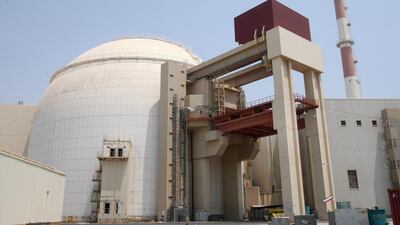There is widespread concern across the Arab world at the perception of having been sidelined by the Obama administration over the P5+1 negotiations with Iran. Many are suspicious of US intentions and fear their concerns about Iran’s regional role will be given short shrift in the effort to reach a nuclear agreement.
Now that the deadline for the negotiations has been extended again, media attention has focused on reactions from Israel and political leaders in the US. But how are Iran and its nuclear programme seen across the Arab world? And how, for that matter, do Iranians assess their government’s policies and what do they expect in the future?
To answer these questions Zogby Research Services (ZRS) conducted polls in six Arab countries and Iran. The study was commissioned by the Sir Bani Yas Forum, partly sponsored by the Foreign Ministry of the UAE, and the Washington-based Center for Strategic and International Studies.
The results shed light on the deep policy divide between Iran and its neighbours and the dangerous disconnect in the way Arabs, on the one side, and Iranians, on the other, assess the latter’s regional role.
In a nutshell, the Arab world is increasingly wary of Iran’s policies and nuclear ambitions, and lacks confidence in the outcome of the P5+1 negotiations.
At the same time, we found the Iranian public was increasingly in favour of their country’s regional engagement and their “right to possess nuclear weapons” – and are willing to pay the price in economic sanctions and international isolation to maintain their nuclear efforts.
As earlier studies also showed, Arab attitudes towards Iran have changed dramatically in the last six years. Back in 2006 to 2008, when many Arabs were reeling from Israel’s devastation of Lebanon and still seething over the American invasion of Iraq, Iran was viewed favourably across the Middle East for its “resistance against the West”. But as Iran’s Lebanese ally, Hizbollah, turned their weapons inward, in what some perceived as a sectarian power-grab, and Iran was increasingly judged to be fuelling sectarian strife in several Arab countries, attitudes changed.
As ZRS’s 2012 study showed, Iran’s role supporting the Assad regime in Syria became the nail in the coffin of Iran’s reputation. In 2008, Iran’s favourable ratings in many Arab countries was in the 70 to 80 per cent range but by 2011, those attitudes had fallen by as much as 60 to 70 points in most countries. While some in the West sought to attribute this to sectarianism, in fact it was politics that was the decisive factor. In the eyes of many Arabs, Iran went from being a bastion of principled resistance to being perceived as a meddlesome neighbour pursuing a dangerous and divisive agenda.
By ZRS’s 2014 survey, when we asked Arabs whether Iran “contributes to peace and stability in the region”, between 74 to 88 per cent of Jordanians, Egyptians, Saudis, and Emiratis said it did not. Even 57 per cent of Iraqis saw Iran’s regional role as having a negative impact. Significant majorities or pluralities in these same countries maintained that Iran’s policies had a negative impact on Syria, Iraq, Bahrain, and Yemen.
In marked contrast with these Arab views, 98 per cent of Iranians said that they believed that their country was playing a positive role in the Middle East.
Further evidence of this deep divide is the fact that only the Lebanese and the Iraqis said their countries had a positive relationship with Iran, while substantial majorities in Jordan, Egypt, Saudi Arabia and the UAE said that they did not have good relations with Iran, nor did they desire an improvement in relations.
With regard to Iran’s nuclear programme, majorities or strong pluralities in every Arab country believed it “has ambitions to produce nuclear weapons”. While a ZRS poll conducted earlier this year found most Arabs supported a negotiated solution to the world’s nuclear stand-off with Iran, it also showed most people in these countries lack confidence that the talks “will succeed in removing the potential threat cause by Iran’s nuclear programme”.
Iranian attitudes on this matter are striking, with 87 per cent saying the country should develop them, compared to 68 per cent a year earlier.
However the latest ZRS study suggests all is not well in Iran, with nearly half expressing discontent with Hassan Rouhani’s efforts to create jobs and protect rights. Ironically, the one area where Iranians gave Mr Rouhani his highest performance score was in “improving relations with Arab neighbours”.
Opinions matter, and the upshot is Arab countries need to feel their concerns are appreciated, while Iranians need to understand it is their own government’s nuclear ambitions that are affecting their economic problems.
Dr James Zogby is the president of the Arab American Institute
On Twitter: @aaiusa


